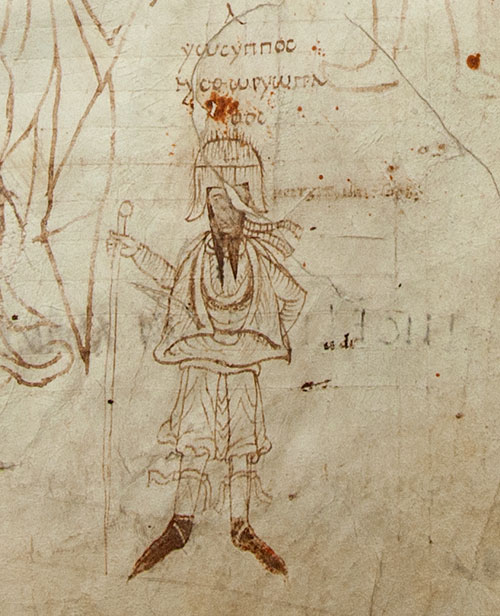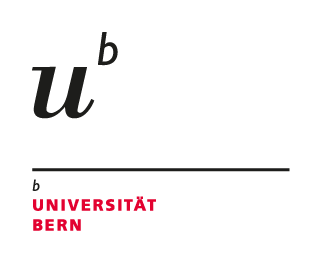
A figure labelled in Greek script as yôsyppos Hysthôriôgraphos, in a 9th-century manuscript containing the Latin translations of Josephus' Antiquities and War, which belonged to the Benedictine Abbey of Saint-Mesmin in Micy, France.
Reproduced with the permission of the Burgerbibliothek Bern. Further information on the figure in Deutsch 1981 and Taylor 2014.
The works of the ancient Jewish historian Flavius Josephus were a central part of the cultural heritage of the Mediterranean world in the Middle Ages, available in at least ten languages and with a profound role in diverse historical and religious traditions. Josephus' major works – the Jewish War (Bellum Judaicum), Jewish Antiquities (Antiquitates Judaicae), and Against Apion (Contra Apionem) – were unique sources for biblical history, Second-Temple Judaism, and the topography of the Holy Land, and as such were foundational for Jewish and Christian apologetics. Within western Europe Josephus seems to have enjoyed greater popularity than any other classical historian, where he was known to Christians through a series of late-antique Latin translations and adaptions, which remain largely unedited and surprisingly understudied (see further About).
The website offers an online catalogue of the more than 300 manuscripts containing the Latin translations of the works of Flavius Josephus enabling the user to understand how his texts were read, transformed, and embedded in medieval Latin culture. It is part of an interdisciplinary project at the University of Bern on the reception of Josephus in medieval Latin Europe (further information here). The project, funded by the Swiss National Science Foundation (SNSF), will run from 2018 to 2022. For more information on the 'Josephus Latinus', the catalogue, and how to use it click About.

